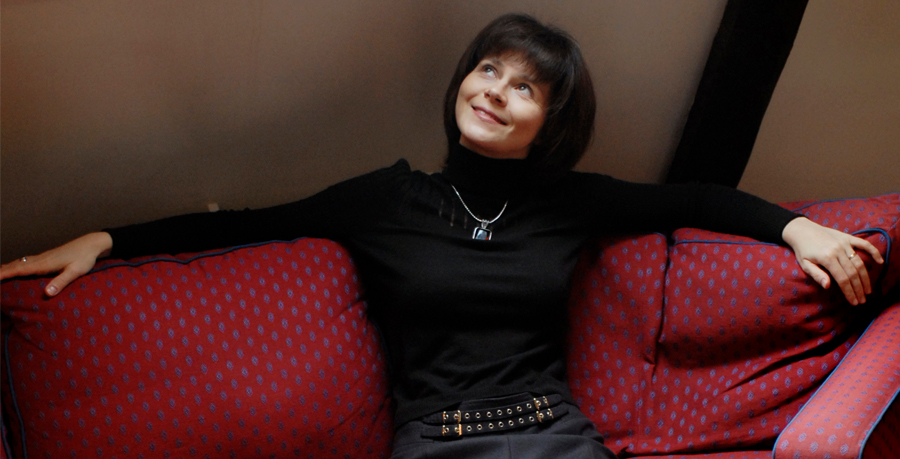Ahead of our performance of Victoria Borisova-Ollas' Open Ground at Cadogan Hall on Wednesday 11 June, we spoke to the composer about the story behind the piece and how she approaches writing music.
Can you give a brief overview of your journey so far as a composer?
My journey as a composer began at early age, at almost the same time as I started to play piano. After graduating first from the Central School of Music in Moscow and then from the famous Tchaikovsky Conservatoire, I continued my composition studies in Sweden at Malmö Music College and in England at the Royal College of Music in London.
The main field of interest for me is orchestral music. After 1998, when one of my earlier works, Wings of the Wind, won second prize in the London-based international Masterprize competition, I was composing pieces for major orchestras in different countries, including the UK, almost non-stop for 20 years. Some of them are purely orchestral music, and some are concertos for different instruments and orchestra. I also wrote an opera Dracula, which turned to be a total sold-out success performance for two seasons at the Royal Opera House in Sweden. Some years later, they commissioned a ballet based on The Phantom of the Opera story. Unfortunately, the project was not finished due to Covid re-scheduling. But a Ballet Suite is going to be extracted from the same music soon. The latest commission I wrote is a Piano Concerto Beyond All Happiness and Joy for Peter Jablonsky and an orchestra of a bit smaller size compared to the number of players involved in the score of the Open Ground.
Open Ground is described as a tribute to the imagination of Salman Rushdie. Could you tell us more about what drew you to his work, and how it inspired this composition? What does the title Open Ground mean to you?
Open Ground for symphony orchestra is indeed inspired by Salman Rushdie`s novel The Ground Beneath Her Feet. It is one of his most significant and complex novels where the fictitious reality goes side-by-side with real historical events. The collisions between the two worlds often have a most devastating effect on the fate of all characters involved. One of them, a legendary rock singer Vina Apsara, disappears under mysterious circumstances while an earthquake is raging in Mexico. I have found an emotional inspiration in the first chapter of the book, containing the description of the earthquake. The title for the piece is my own, however. Open Ground is an expression which might be interpreted differently depending on the context. The ground beneath our feet, the reality in which we exist at the moment, how real and stable is it? Also who would have ever dared to imagine what it feels like when it suddenly starts to rock?
Open Ground was commissioned by RSO Stockholm and written during the spring of 2006. It is also included as an opening part of a bigger composition, The Ground Beneath Her Feet, based on the titular novel. Commissioned by the first Manchester International Music Festival in 2007, it is a 90-minute-long performance that combines music with a visual installation by Mike Figgis.
How did you approach turning those ideas into music?
Well, technically, it is always a long process. The score needs to be written, and it takes several months. But the inspiration comes instantly while reading the text of the book or seeing the work of art. I usually see my music in pictures, colours, shapes which are instantly 'translated' into sound. I take notes first and put all this material in a sort of 'archive' for the future. When the right opportunity occurs, I put all the notes together and write the music down.
It was the same process with the Open Ground. Salman Rushdie is the greatest author among writers of his generation, in my opinion. It is an immense pleasure to work with literature of such high quality.
What do you hope listeners will take away from the piece?
I hope it will be a strongly positive experience, both musically and emotionally.

